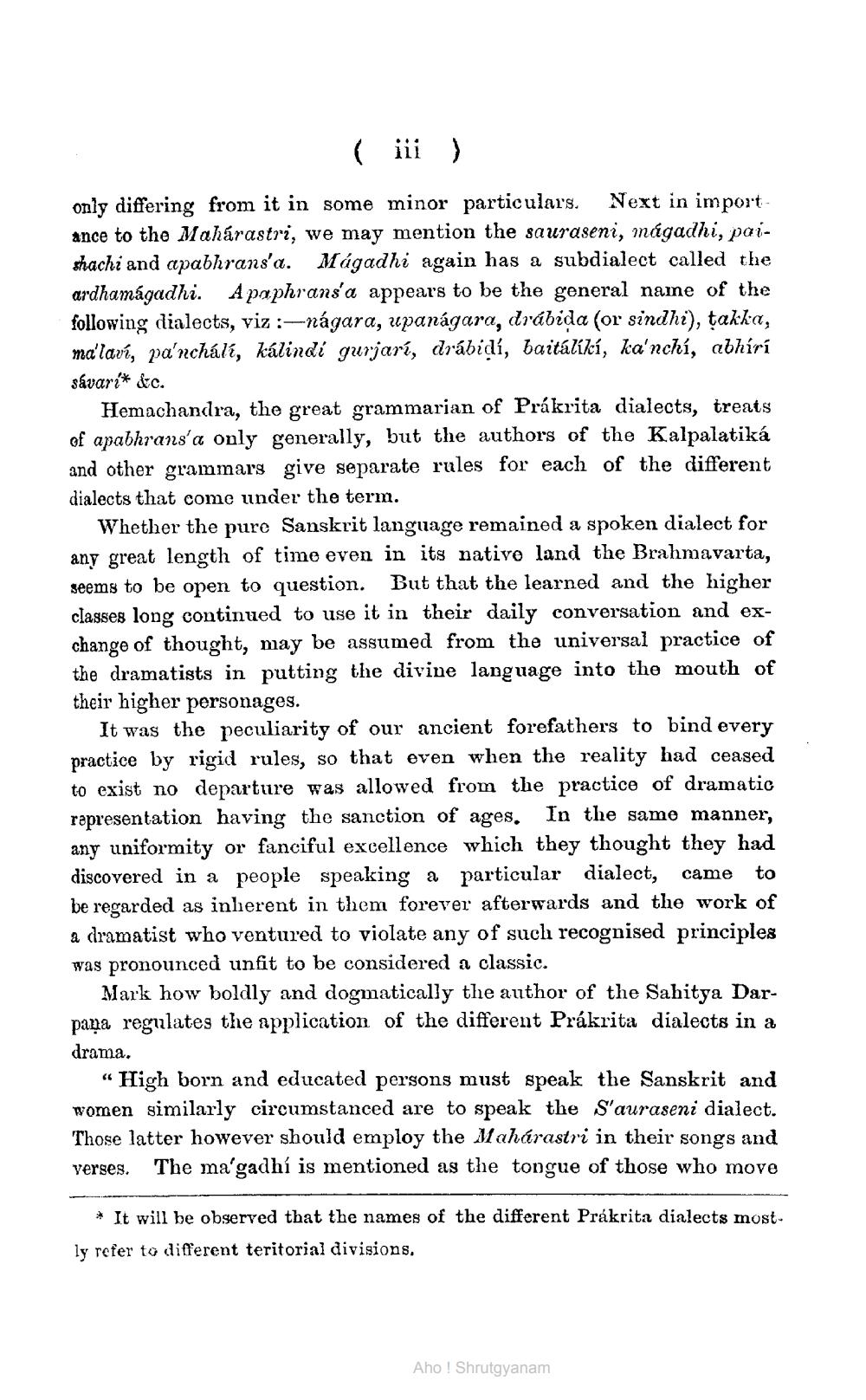________________
(iii)
only differing from it in some minor particulars. Next in import ance to the Maharastri, we may mention the sauraseni, mágadhi, paishachi and apabhrans'a. Mágadhi again has a subdialect called the ardhamagadhi. Apaphrans'a appears to be the general name of the following dialects, viz :-nágara, upanagara, drábida (or sindhi), takka, ma'laví, pa'ncháli, kálindi gurjarí, drábidí, baitálíkí, ka'nchi, abhiri sávari* &c.
Hemachandra, the great grammarian of Prákrita dialects, treats of apabhrans'a only generally, but the authors of the Kalpalatiká and other grammars give separate rules for each of the different dialects that come under the term.
Whether the pure Sanskrit language remained a spoken dialect for any great length of time even in its native land the Brahmavarta, seems to be open to question. But that the learned and the higher classes long continued to use it in their daily conversation and exchange of thought, may be assumed from the universal practice of the dramatists in putting the divine language into the mouth of their higher personages.
It was the peculiarity of our ancient forefathers to bind every practice by rigid rules, so that even when the reality had ceased to exist no departure was allowed from the practice of dramatic representation having the sanction of ages. In the same manner, any uniformity or fanciful excellence which they thought they had discovered in a people speaking a particular dialect, came to be regarded as inherent in them forever afterwards and the work of a dramatist who ventured to violate any of such recognised principles was pronounced unfit to be considered a classic.
Mark how boldly and dogmatically the author of the Sahitya Darpana regulates the application of the different Prákrita dialects in a drama.
High born and educated persons must speak the Sanskrit and women similarly circumstanced are to speak the S'auraseni dialect. Those latter however should employ the Maharastri in their songs and The ma'gadhí is mentioned as the tongue of those who move
verses.
"C
*It will be observed that the names of the different Prákrita dialects mostly refer to different teritorial divisions.
Aho! Shrutgyanam




